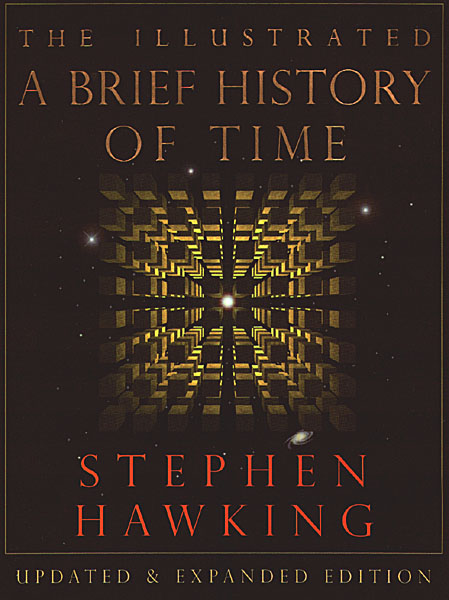A Brief History of Time
by
Stephen Hawking
Stephen Hawking, one of the most brilliant theoretical physicists in history, wrote the modern classic A Brief History of Time to help nonscientists understand the questions being asked by scientists today: Where did the universe come from? How and why did it begin? Will it come to an end, and if so, how? Hawking attempts to reveal these questions (and where we're looking for answers) using a minimum of technical jargon. Among the topics gracefully covered are gravity, black holes, the Big Bang, the nature of time, and physicists' search for a grand unifying theory. This is deep science; these concepts are so vast (or so tiny) as to cause vertigo while reading, and one can't help but marvel at Hawking's ability to synthesize this difficult subject for people not used to thinking about things like alternate dimensions. The journey is certainly worth taking, for, as Hawking says, the reward of understanding the universe may be a glimpse of "the mind of God."
Audio 4 parts




